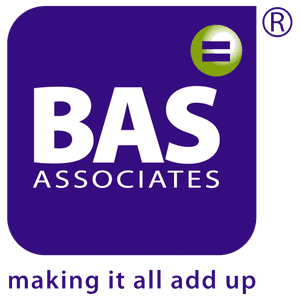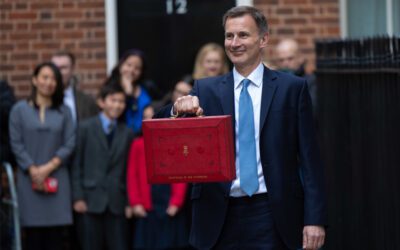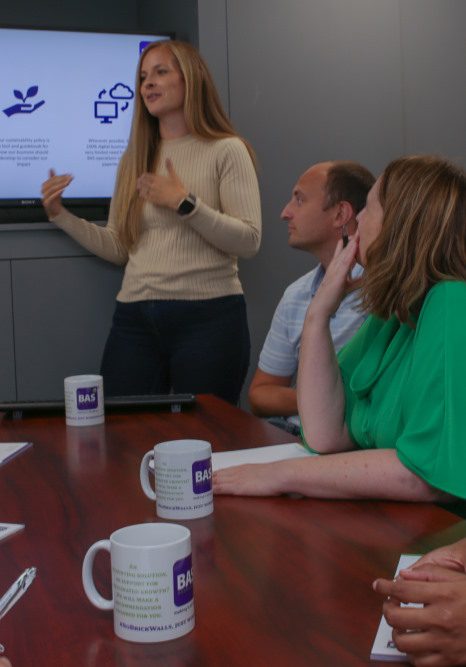Am I affected by the Domestic Reverse VAT Charge?
We’ve been talking to our clients about the domestic reverse VAT charge (DRC) for building and construction services for some time now. However, with queries still coming through from prospective clients we thought this short article may help those who are still looking for support (but of course we’re always happy to talk through any questions).
It was some time ago now that HMRC first published its decision to implement a reverse charge system for VAT amongst the building and construction industry. The scheme was initially scheduled to come into force from 1st October 2019. However, it was initially delayed for a year over a concern regarding lack of preparation in the industry, and further delayed due to the impact of COVID-19.
The new date for the commencement of this system was 1st March 2021. So, with the scheme now in operation, it’s essential that anyone impacted by these changes fully understands how they are affected.
Firstly, what you need to do differently?
If you’re not VAT registered: Nothing. Absolutely no need to worry about this at all.
If you are VAT-registered:
- When paying sub-contractors who are not VAT-registered nothing
- When buying materials nothing
- When paying sub-contractors who are VAT-registered new rules apply
- When billing contractors who are VAT-registered new rules apply
The new rules, what is changing?
Under current rules, a sub-contractor charges VAT to their customer, collects the VAT from the customer and accounts for it in Box 1 of their relevant VAT return, before paying this amount over to HMRC.
This is changing for supplies between VAT-registered entities in the building and construction trade. The sub-contractor will invoice the contractor without charging VAT and the contractor makes the Box 1 entry instead on their own VAT return.
In effect, there will be no cash flow issue for the contractor receiving services because the same amount of VAT declared in Box 1 will also be included as input tax in Box 4: i.e. a nil effect overall. This is known in VAT speak as a “reverse charge” procedure.
The reason for change
HMRC has identified that certain builder supplies have been prone to VAT fraud, where the supplier charges VAT to his customer, receives money for this VAT from the customer but never declares it on a VAT return. The new procedures aim to prevent this from happening because the supplier is never paid VAT in the first place.
Which sales are caught by the new rules?
The new reverse charge procedures will apply to the following transactions:
- The legislation refers to “specified services” but these do not apply to services supplied to non-construction businesses, such as a retailer having their premises improved or any other end-user customer or building owner.
- The reverse charge will also apply to any goods supplied by the builder as part of their work.
- The reverse charge is based on the rate of VAT that applies for the work in question but only supplies subject to either 5% or 20% VAT. Zero-rated sales are excluded.
Example
Mike is an electrician, VAT-registered as a sole trader. He is doing some work on an office block, invoicing the main contractor Steve for his work.
Steve is also VAT-registered and will then invoice the building owner. Steve is not an “end-user” because he is making an onward supply of construction services to his own customer. He is an “intermediary supplier”.
The invoice raised by Mike will be subject to the new procedures i.e. no VAT is charged. Let’s say the value of his work including materials will be for £5,000: Mike’s VAT return will only include the value of the sale in Box 6 (outputs) of his VAT return:
- Box 6 outputs – £5,000
Steve will do the reverse charge calculation and make the following entries on his return:
- Box 1 output tax £1,000 (i.e. £5,000 x 20%)
- Box 4 input tax – £1,000 (same figure as Box 1)
- Box 7 inputs – £5,000 (net value of payment made to Steve)
Other issues to consider:
Taking the Steve and Mike example a stage further, they each have their own responsibilities with the new rules:-
- Mike must ensure that Steve is both registered for the CIS (Construction Industry Scheme) and has a valid VAT number.
- Mike must also specify on his sales invoices the amount and rate of VAT that Steve must declare with the reverse charge i.e. 5% or 20% VAT.
- Mike should include wording on the sales invoice along the lines of: “Reverse charge: customer to pay the VAT to HMRC.”
- Steve must tell Mike if he is an “end-user” or “intermediary supplier”. If he is an intermediary supplier, then Mike will not charge him VAT because the reverse charge applies.
- It is important that Steve does not pay VAT incorrectly to Mike because HMRC could raise an assessment for the VAT that he should have declared, i.e. as if the reverse charge had been done correctly.
For a more visual representation of how the changes may impact you and your business, HRMC have created some useful flowcharts:
Here is a link to the flowchart for buyers.
Here is a link to the flowchart for suppliers.
Finally, here are a few other points to consider:
- Checks should be applied to ensure building contractor clients invoiced under the new rules are properly registered for VAT and are bona fide. Section 9 of HMRC VAT Notice 735: Domestic reverse charge procedure gives further information.
- HMRC suggests that if there are any doubts about the credentials of a builder customer, then a deposit equal to the amount of VAT not being charged should be collected from the customer, e.g. if they have applied for but not received a VAT number.
- VAT Notice 735 mentioned above gives examples of customer checks that should be considered at para 9.3.1.
I hope this gives you an idea about the key issues to consider with the new rules. The scheme is now in operation so please remember to read the regulations and ensure that you are complying with them.
HMRC provide a comprehensive guide to these new rules at https://www.gov.uk/guidance/vat-domestic-reverse-charge-for-building-and-construction-services.
If there is anything I can help with, please do not hesitate to contact me on 01296 681341 or brett.smith@basassociates.co.uk
For a complimentary Discovery Call to discuss the most appropriate level of support on a wider basis, a personalised quote and a guarantee of our best possible service, please complete the form below and one of our senior advisors will contact you.
Or if you prefer, please call 01296 681341 for our Wingrave Bucks Accountants office.






